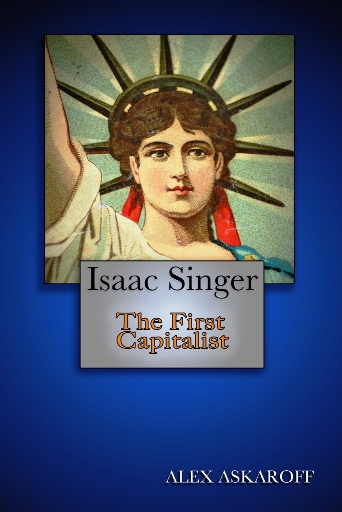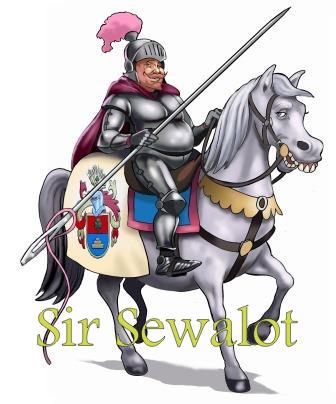|
||||
|
|
||||
|
Alex Askaroff is considered one of the foremost experts in 19th Century sewing machines and their pioneers. He has had Seven No1 New Releases on Amazon. His books are available on ALL formats, phones, tablets and in paperback worldwide. FREE with Kindle Unlimited.
The Luton Hat Trade It is difficult today to imagine that Luton was the world centre of the Hat Industry, but for centuries that is exactly what it was. There was hardly a street that did not have a hat makers or someone connected to the hat trade in it. There was Olney's who manufactured straw Boaters, Lane's, who were the block makers that made the wooden blocks that hats went onto. Brightman's in Bute Street and Snoxell's in Frederick Street. A & C Simson of Guildford Street. One after another these business closed as the trade, that had survived embargoes and even Napoleon’s blockades, changed into a university town. Age old traditions taught to children before they could run, disappeared too. Legend tells that once there were more hat businesses in Luton than days of the year. Here for the first time world renowned author Alex Askaroff brings Luton’s history back to life with actual stories from hat makers and much more. Come on a journey and discover why some people really were as ‘mad as a hatter’. |
||||
|
No1 New Release
News Flash!
All Alex's books Fancy a funny quick free read: Ena Wilf & The One-Armed Machinist See a day in the life of a sewing machine engineer: Alex Askaroff on Youtube Sewing Machine Tension Problems SORTED in a heartbeat!
Hi Alex When Luton was in the cup final my dad had a straw hat made. It was so large that it filled the top of his car with Luton on it. The whole street had cheered him off. Luton lost and the hat blew off the car on the M1 motorway on the way home. My parents had a fish and chip shop in Chapel Street and there were loads of pubs in Luton because of the thirsty hat trade. Cheers Jill
Hi Alex Canada lost a lot of Beavers to the Fur Trade because Beaver Fur is THE BEST for making fine Top Hats. Every spring the Port of Thunder Bay awards a Top Hat to the Captain/Master of the first vessel; Salty or Laker to come up Lake Superior and dock. Usually coming in to pick up a load of Canadian Grain that is to be exported globally. Twice in recent years the First arrival has had a female Master; she has been offered a cash gift in lieu, but both times has requested the traditional Top Hat because it is such a honor and known to be such. In 2016 the first and second vessels arrived within less than an hour of each other! A Close Call. Salty is an Ocean going vessel, while Laker remains within the Great Lakes/St Laurence Seaway which is Fresh Water. Liz Powell
Hi
I have read with huge interest and with many fond memories
of the Luton Hat Trade.
My grandfather and great grandfather were blockers and my father,
Sidney Simpson, had a business at 6 Silver Street Luton until 1960
selling ribbons etc.
In 1962 I joined A&C Simson of Guildford Street, as a management
trainee, intent on managing, even owning, my own factory one day. I
did everything from stoking the boiler, when the boilerman was on
holiday, to learning the various manufacturing processes.
A few years later I joined A company called Richards and Thirkell
who were Manufacturer's Agents for Swiss plait manufacturers, German
velvet manufacturers and Italian cloth manufacturers. This work of
course brought me into contact with many of the Luton hat
manufacturers in search of orders. I remember well Jacoll Hats in
Guildford Street, referred to by Linda in one of the stories I saw,
which had become a Public Company.
I recall so many wonderful people and variations in the industry. So
many good friends and associates. 'The Hat Factory' museum and
gallery was Albert's, a factory I knew
well. Walter Wright shown on the heritage Website was a customer I
saw regularly.
Great memories. I would love to hear from anyone who might remember
me or my family.
Best wishes,
Hello Alex, My mother was a copier for the hat factory. She worked from home and would go to pick up a hat from the factory and the materials necessary to make copies of the hat. She said all her skills went back to her training in the hat factory.
She told me that when strangers came to Luton, they would always ask
why all the women were walking around with large hat boxes. Many
women supplemented their income by working from home while they
raised their children.
As a child, she would show me how she made fabric flowers and when
Easter bonnets were still in style, she used to buy my sister and I
straw hats and spend considerable time decorating them with fabric
flowers, ribbons and netting. I must say our bonnets were quite
spectacular in comparison to the store bought variety. I was so pleased to have found your book. Thank you again for all your research. Marian Lumsden, Canada
|
||||
|
|
See a day in the life of a sewing machine engineer: Alex Askaroff on Youtube
|
|
||
|
CONTACT: alexsussex@aol.com Copyright © |
||||



